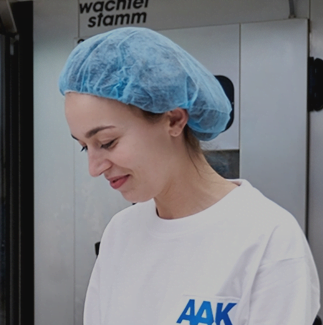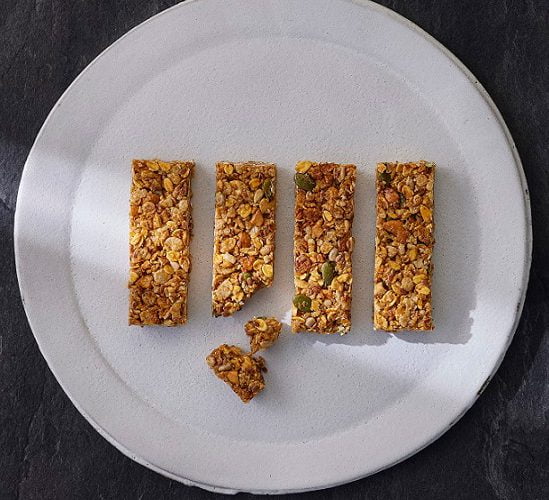With a practice-oriented white paper, ProVeg shows confectionery manufacturers the tangible advantages of a plant-based recipe and how to implement it. The paper contains suggested solutions for four common scenarios, practical ingredient knowledge, and tips for V-Label-compliant production. It also contains contact persons for all relevant topics relating to a plant-based conversion of the manufacturing processes.
The demand for plant-based confectionery is growing across Europe. Sales of plant-based ice cream increased 14 percent between 2020 and 2022, while sales of plant-based desserts increased 27% during the same period. 1
Plant-based confectionery also offers decisive advantages for manufacturers: the ingredients are often cheaper than those of animal origin. An example is margarine instead of butter. Without eggs, the shelf life of the products can also be extended. Finally, confectionery without eggs and lactose usually meets the criteria for Halal and Kosher and is therefore particularly suitable for export.
First one, then two, then three, then four scenarios with solutions
ProVeg presents possible challenges and solutions when switching to a plant-based recipe in four scenarios: Scenario A deliberately deals with plant-based products with a label such as the V label. Scenario B unintentionally includes herbal products without labeling. Scenario C is dedicated to “easy wins”, i.e. products with few and easily replaceable animal ingredients. Finally, scenario D describes products for which animal ingredients are essential.
There is great potential for plant-based product lines in all four scenarios. ProVeg also gives manufacturers tips for greater visibility, clear labeling, and clever selection of ingredients.
Practical ingredient knowledge and tips for making V-label products
An ingredient science program developed by ProVeg together with KitchenTown presents plant-based alternatives to animal ingredients. It takes into account texture, structure, and stability as well as the appearance, mouthfeel, taste, and smell of the finished product. The focus is on milk powder, milk sugar and milk fat, gelatin, butter, and (fresh) eggs as well as animal proteins and fats.
Finally, the V-Label provides practical tips for the manufacturing process. Existing production facilities or systems can continue to be used without any problems. Changes are only necessary during cleaning. The V-Label also has pragmatic solutions ready for the special case of chocolate.
Who, how, what?
The white paper always shows who manufacturers can contact with specific questions – from the ProVeg test community to the start-ups from the ProVeg Incubator to the V-Label team – and refers to additional practical toolkits.
Sources: 1 GFI Europe (2023): Europe: Plant-Based Foods Retail Market Report (2020-2022), updated version in April 2023. Online at: https://gfieurope.org/wp-content/uploads/2023/04/2020-2022-Europe-retail-market-insights_updated-1.pdf



